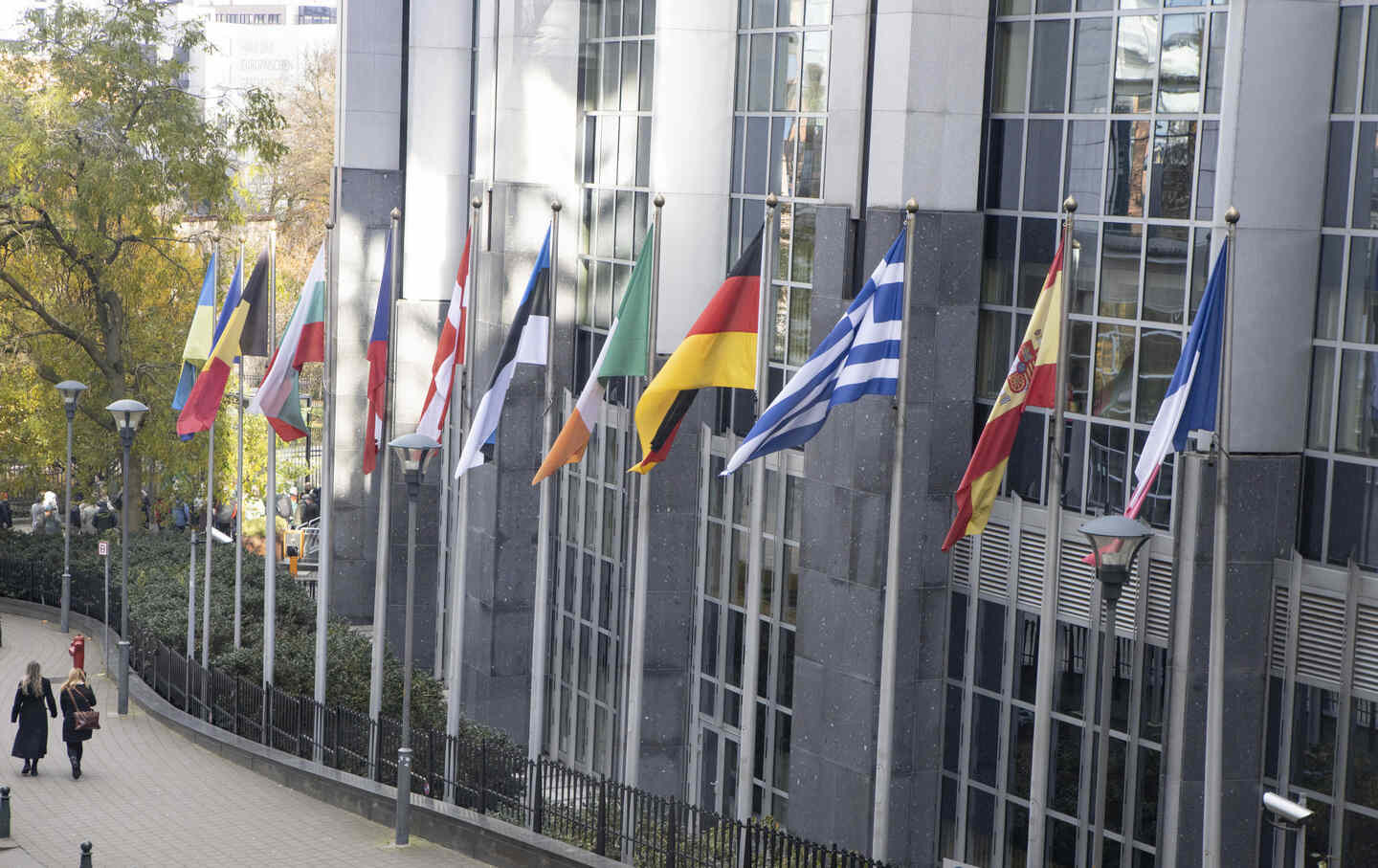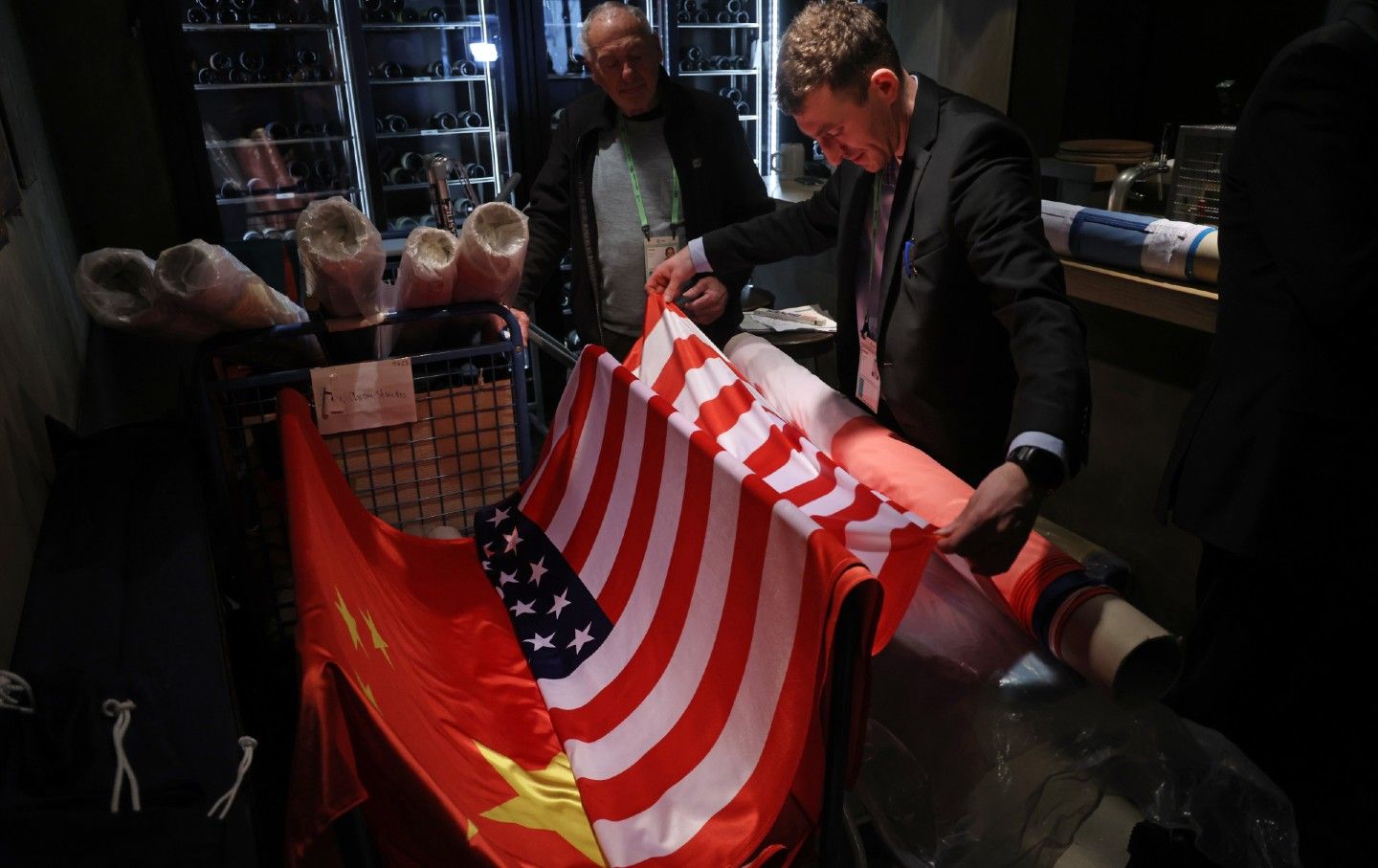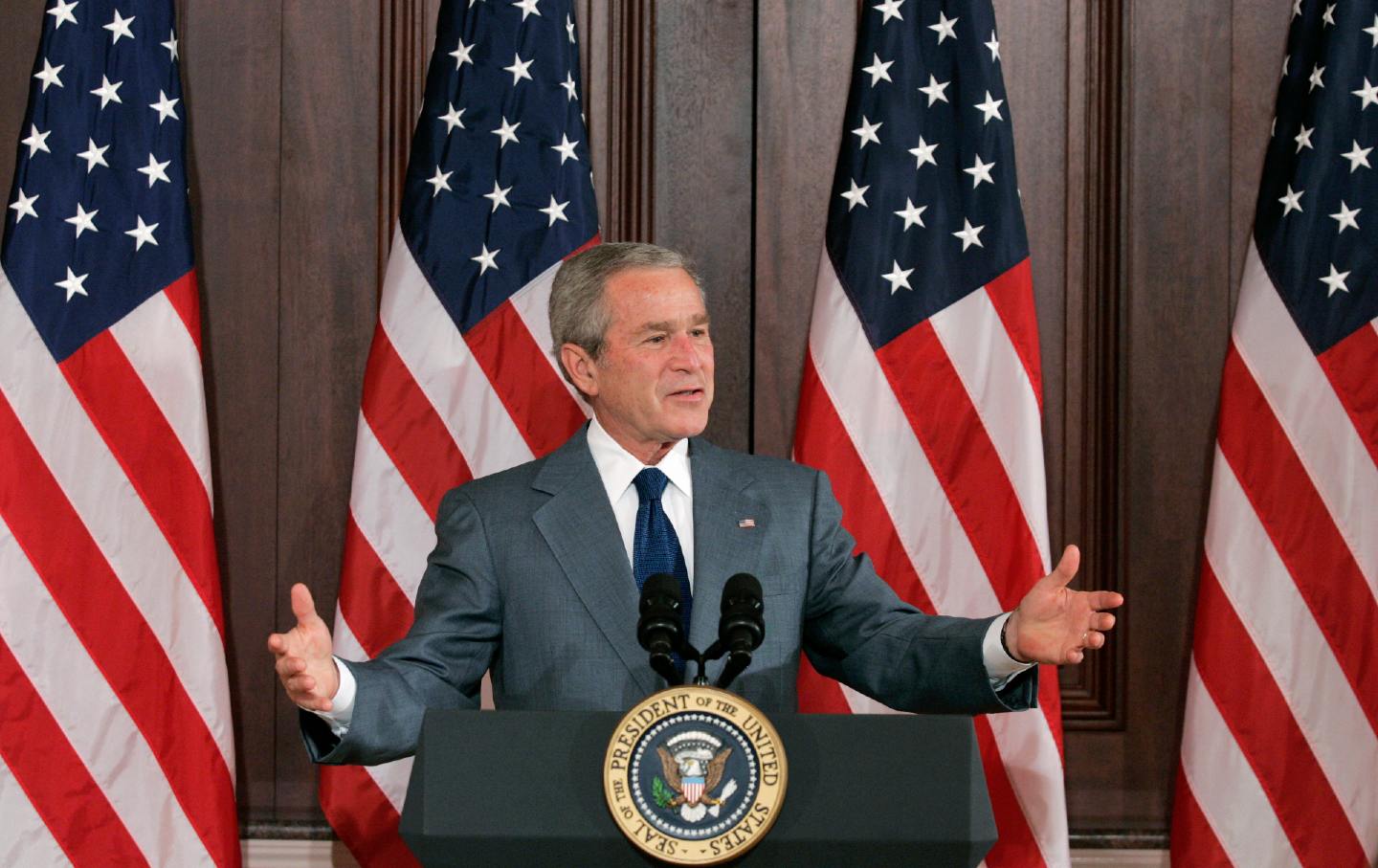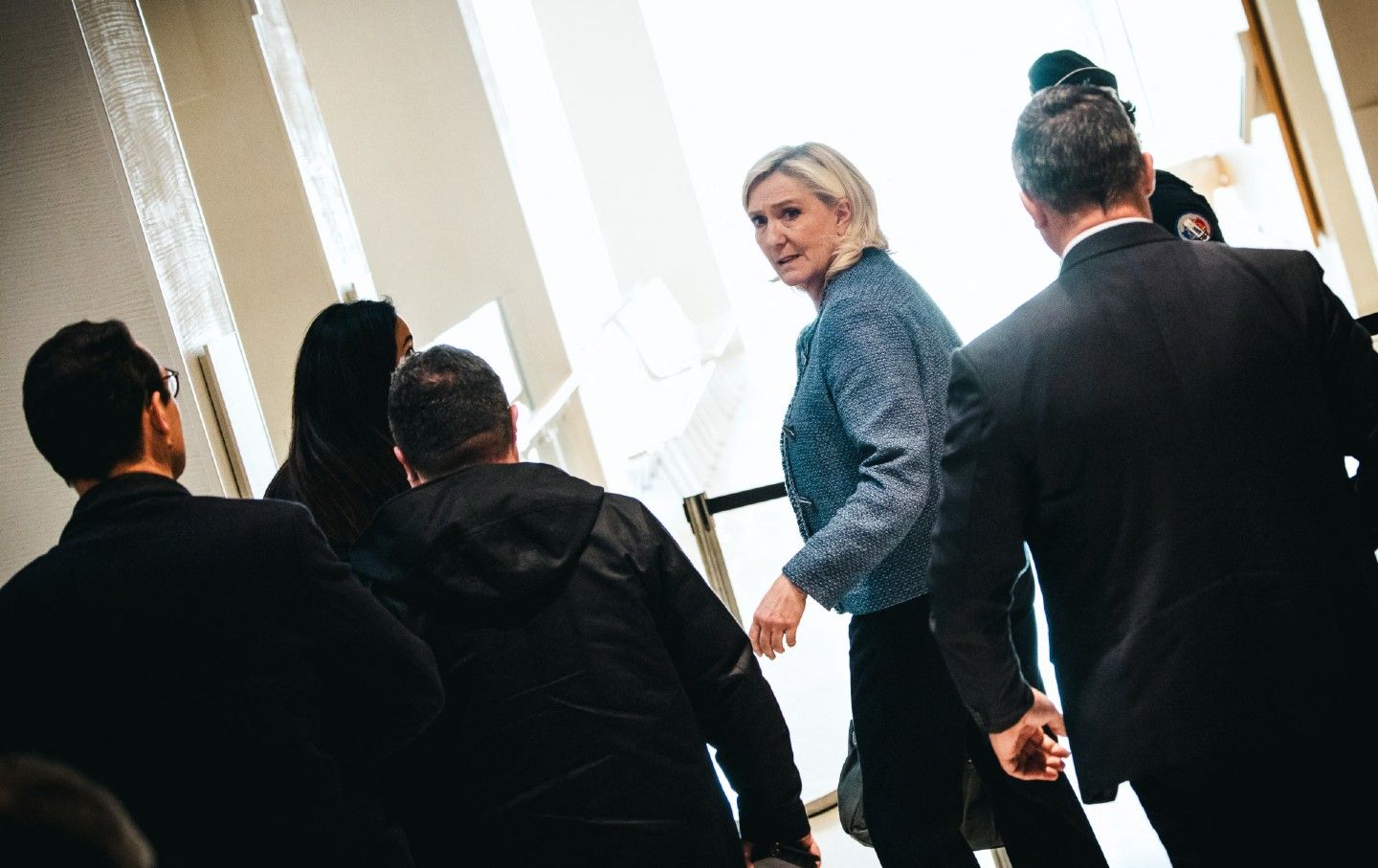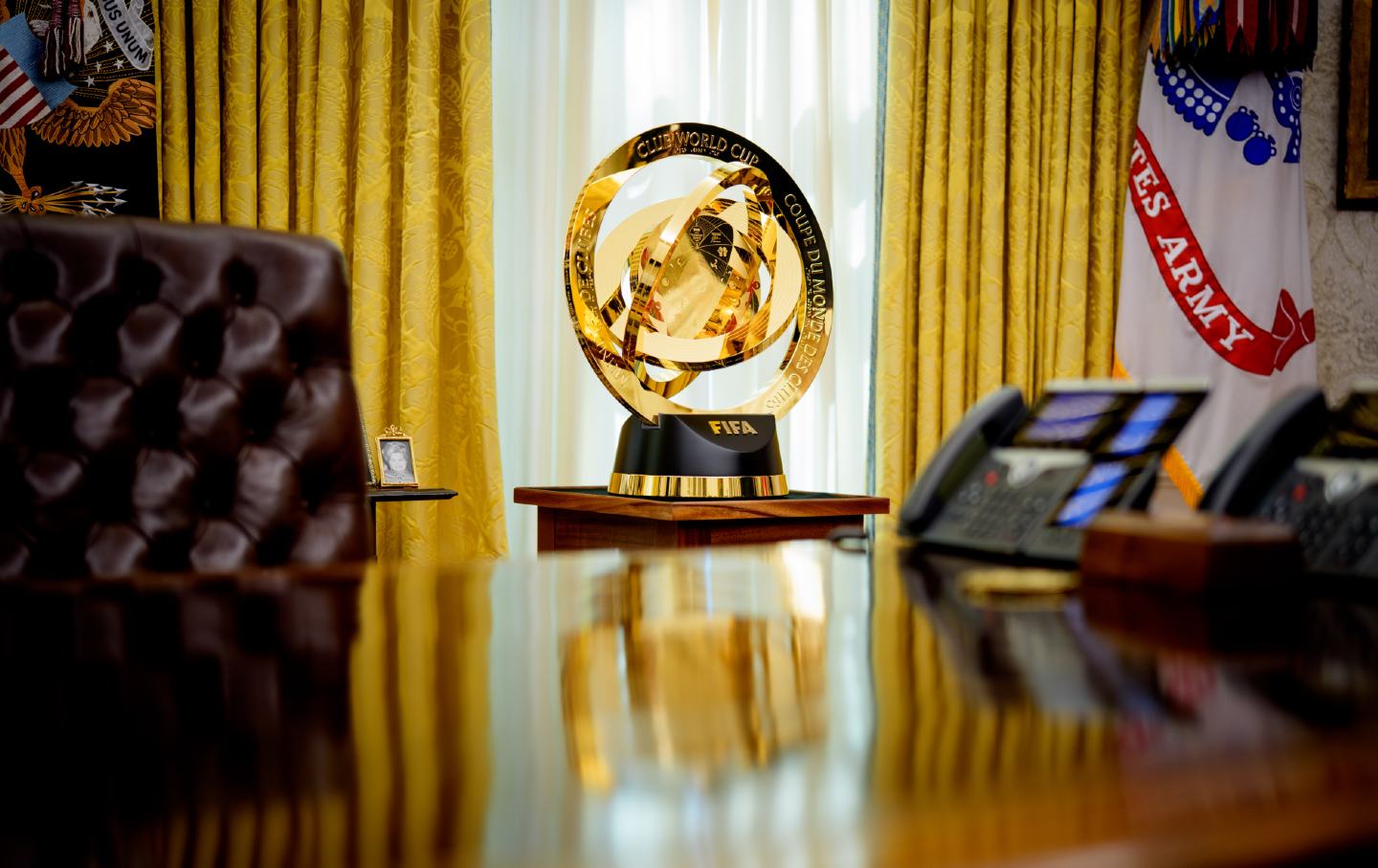Justin Trudeau’s Fecklessness Made Him an Easy Target for MAGA Manifest Destiny
The United States probably won’t annex Canada. But Trump’s imperial dreams are already destabilizing the world.
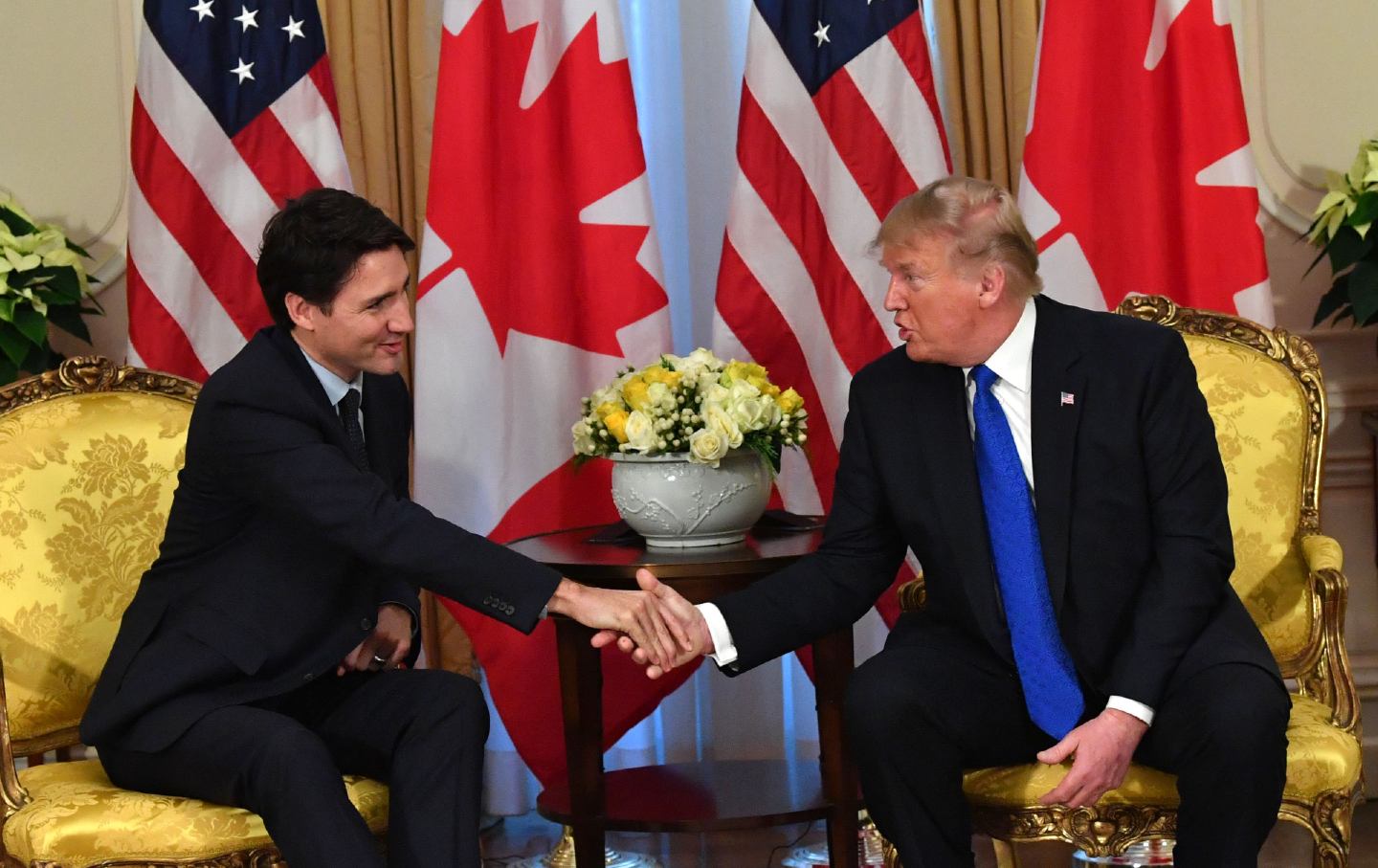
One of the hallmarks of the Trump era is that ideas that were once fringe fantasies are suddenly making international headlines. In recent weeks, Donald Trump has taken to advocating for a new age of American imperial expansion—a MAGA-style Manifest Destiny that would include absorbing Canada, purchasing Greenland from Denmark (with the threat of tariffs and military force as levers in the negotiation), and reconquering the Panama Canal. These bizarre ideas—which Trump only occasionally mentioned previously and which played scant part in his presidential campaign—have accurately been dismissed by Elizabeth Warren and others as “distraction” from more serious debates about Trump’s controversial cabinet picks, not to mention genuine intractable problems such as the ongoing wars in Ukraine and the Middle East.
While Warren’s analysis is no doubt true, Trump has often succeeded in dominating the discourse by befuddling his opponents via his advocacy of crackpot ideas that have no chance of being implemented. But clownish distractions also have real-world impact. Political elites in Europe, Mexico and Canada are rightly protesting Trump’s comments and deciding how to navigate in a world where the largest superpower is in such unstable hands.
More immediately, Trump’s relentless bullying of Canada has already had a real world impact in being partly responsible for Canadian Prime Minister Justin Trudeau’s announcement that he was stepping down as head of the Liberal Party, bringing to an end his tenure as national leader which started in 2015.
To revive a phrase much used in Trump’s first term, MAGA Manifest Destiny shouldn’t be taken literally—but it must be taken seriously. There is little reason to think Trump has the wherewithal to mobilize the American government to conquer foreign territory, but both Trump and his ally Elon Musk are antagonizing venerable American allies in ways that is already remaking international relations.
To be sure, Trump’s browbeating of Trudeau and Canada was merely the final push that toppled a long-tottering government. Like many incumbent leaders in the age of Covid, Trudeau has become immensely unpopular. For more than last two years—dating back to the summer of 2022—Trudeau’s Liberal party has suffered an increasingly large polling gap with the Conservative Party, headed by Pierre Poilievre. But Trudeau’s inability to effectively rally his party and his country against Trump’s threat of a tariff war leading to annexation ended what support the prime minister had retained in his own party. Former finance minister Chrystia Freeland specifically cited the need for a new national unity approach to fending off Trumpism when she resigned from the cabinet on December 16.
Speaking to Democracy Now!, Avi Lewis, a documentary filmmaker who will be running for federal office in next election for the left-wing New Democratic Party, noted that Trudeau has been “down 10 or 20% in the polls for a year and a half. He’s faced…an uprising in his own party. And just like Joe Biden, he waited way too long…. I think his ego got in the way.”
Trump might have done the Liberal Party a favor by creating a crisis that led to Trudeau’s resignation. The Liberals are still on track to lose the next election, but it’ll certainly be a narrower loss than the catastrophe they were heading for under Trudeau, where pollsters speculated that the party could be reduced from 153 seats in Parliament to as few as six. One problem Liberals face is that Trudeau’s likely replacements are not at all inspiring. The names most often mentioned —Freeland and former governor of the Bank of Canada (and former governor of the Bank of England) Mark Carney—are both dull-as-dishwater elite centrists with no feel for the anti-system anger that is roiling Canadian society.
In truth, Trudeau’s undoing was only fortuitously exacerbated by Trump. It was more centrally rooted in Trudeau’s own profound fecklessness. Trudeau rose to prominence as a Canadian knock-off of Barack Obama, a charismatic face of generational and cultural change. But like the Democratic Party under Obama, much of this change was superficial identity politics. Trudeau did bring gender equality to the cabinet, but more than one female cabinet minister, including Freeland, felt the prime minister treated them with disrespect. Trudeau’s progressive luster was further tarnished by photos showing he repeatedly wore blackface in his youth.
As journalist Jeremy Appel astutely observed in Jacobin:
During his near-decade in power, Trudeau became one of the most prominent international poster boys for tepid, performative reformism that never strayed outside the neoliberal straitjacket. His flagship climate policy—a national carbon tax—was deeply unpopular. While the policy was first implemented on a provincial level by right-wing governments in Alberta and British Columbia and had the blessing of the godfather of modern Canadian conservatism, Preston Manning, Conservative leader Pierre Poilievre has effectively used it as a scapegoat for the soaring cost of living.
While Trudeau has talked a bigger game on climate than any other prime minister, Canada remains the only G7 country to have increased its carbon emissions since 1990. At the same time, housing prices are astronomical, particularly in the Toronto and Vancouver metropolitan areas, and economic inequality has reached the highest level on record.
With Trump returning to the White House, it’s possible to imagine a Canadian leader tapping into nationalist sentiment and running against the threat of the blustery and dangerous Yankee president. After all, that’s the card Justin Trudeau’s father, Pierre Elliott Trudeau, played deftly in the era of Richard Nixon and Ronald Reagan. It’s also the tack taken by Mexican President Claudia Sheinbaum against Trump. But Justin Trudeau lacks his father’s gravitas and is too unpopular to effectively rally a renewed Canadian nationalism.
Trump’s MAGA Manifest Destiny seems so bizarre it is tempting to dismiss it as one of the many strange quirks of Trump’s personality. But in fact it is deeply rooted in a persistent, if sometimes latent, tradition on the American right.
In 1990, Pat Buchanan published a column titled “American Dream: Absorbing most of Canada.” Using Canada’s perennial dispute over the constitutional status of Quebec as a jumping off point, Buchanan speculated that America could expand mightily if its northern neighbor were to fall apart.
Buchanan quoted the utopian dreams of R. Craig Schoonmaker, head of the “tiny U.S. Expansionist Party” who claimed that “Canadian accession to the union…would bring a huge store of resources, fresh water, educated population, etc. into the national realm,” which would “end all talk of the ‘decline’ of the United States.”
Buchanan’s column ends with the same argument—that territorial expansion is the path to American national renewal. According to Buchanan:
There is nothing wrong with Americans dreaming of a republic which by the year 2000 encompasses the maritime and Western provinces of Canada, the Yukon and Northwest Territories all the way to the Pole, and contains the world’s largest island, Greenland, purchased from Denmark, giving the United States a land mass rivalling that of the U.S.S.R….
The 21st century then could not but be the Second American Century.
Nor were Buchanan and Schoonmaker alone. In 1986, Peter Brimelow, a financial writer turned right-wing pundit, published The Patriot Game, which argued that Canadian nationalism was a liberal fraud that allowed a Quebec-based elite to dominate over English Canada. Brimelow’s remedy was for English Canada to join the United States. Brimelow, who had immigrated to the United States from the United Kingdom and briefly sojourned in Canada, would subsequently emerge as an outspoken anti-immigration advocate with pronounced white nationalist tendencies.
Both Brimelow and Buchanan were important thinkers in the nascent paleoconservative movement of the 1980s—a political faction that urged the American right to take a more nationalist and nativist stance in the wake of the waning of the Cold War. Schoonmaker was also a creature of the far right, albeit one with an eccentric trajectory: a pioneering gay rights activist in the 1960s, he morphed into a raging misogynist and racist who described Black people as “enemies to be exterminated.” As the historian Nicole Hemmer and the journalist John Ganz have both argued in recent books, paleoconservatism was an essential precursor to Trumpism.
In other words, Donald Trump is just a warmed-over Pat Buchanan.
Popular
“swipe left below to view more authors”Swipe →Buchanan, who ran for president in 1992 under the slogan “America First,” is sometimes described as an isolationist—a misidentification also frequently applied to Donald Trump. But the tradition that Buchanan and Trump belong to is not, as I’ve pointed out before, isolationist. Rather, theirs is a version of unilateral nationalism—with imperialist aspirations. This tradition goes back to William McKinley and Theodore Roosevelt, and was carried forward by Herbert Hoover, Charles Lindbergh, and Robert Taft. Unilateral nationalism is skeptical of foreign alliances such as NATO and entanglement in European affairs. But it is committed to hemispheric dominance and the renewal of Manifest Destiny.
Speaking on CNN, Republican Representative Brandon Gill said, “President Trump is bringing us into a golden age of America. This is the new Manifest Destiny. Reacquiring the Panama Canal, acquiring Greenland, renaming the Gulf of Mexico to the Gulf of America. This is the light of America expanding.”
There’s something pathetic about this new MAGA Manifest Destiny. It’s an exercise in nostalgia fueled by anxiety about American decline. The United States has fared badly on the international stage in the 21st century. The Global War on Terror launched by George W. Bush was a world-historical fiasco, ending ignominiously on its own terms along with a failure to achieve hegemony. The United States is now heavily dependent in the Middle East on unsavory allies such as Saudi Arabia and Israel, which might be able to win some tactical victories but at the cost of discrediting the international order America claims to support. In Ukraine, the American-supported war effort is going badly. America’s ability to thwart the rise of China is also deeply limited.
In the context of all these failures, Trump is offering a nostalgic Manifest Destiny of social media bullying. But being able to push around Canada is hardly evidence of great statesmanship. In the real world, MAGA Manifest Destiny will only hasten America’s long trajectory of national decline.

